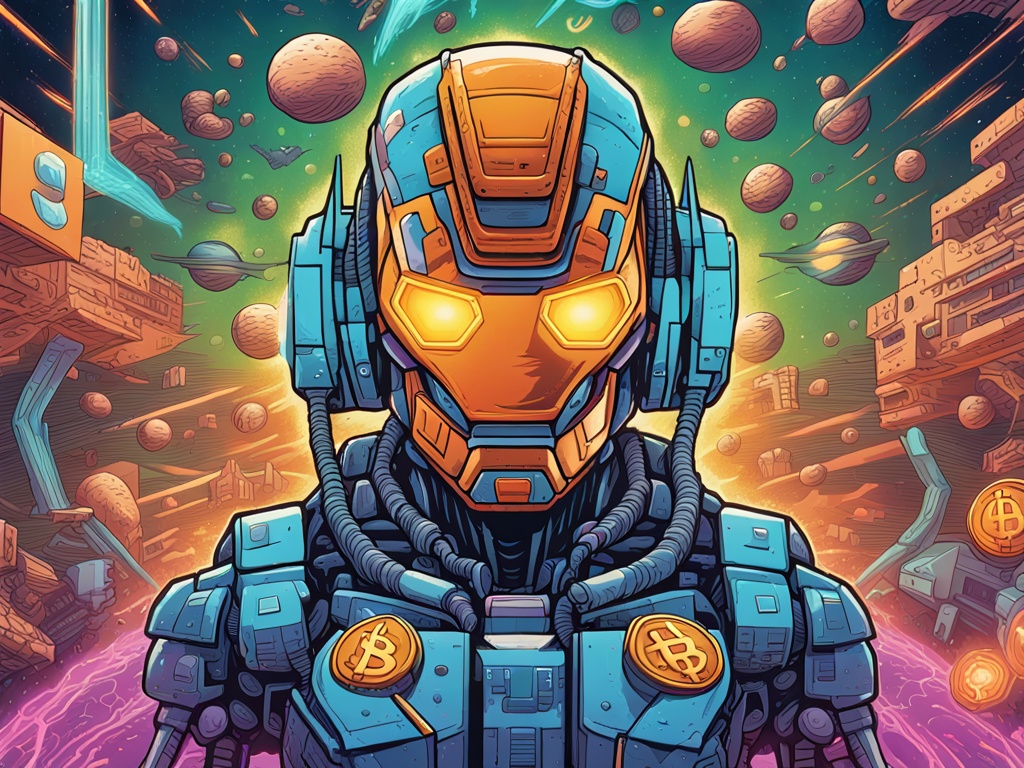The Rise of Decentralized AI: Are We On the Brink of Revolution or Just Chasing Fads?
It’s an exciting time to be talking about the intertwining worlds of cryptocurrency and artificial intelligence (AI). Imagine a future where your digital assets and personal data are not just in your control but are enhanced by intelligent systems that work for you, not against you. Sounds tantalizing, doesn’t it? Recent discussions among experts highlight a growing buzz around decentralized AI, raising the question: Is this the next big trend in tech, or just another retail fad waiting to fizzle out? Let’s dive into the details to better understand this landscape.
Key Takeaways:
- Decentralized AI Market Surge: Investments in decentralized AI startups skyrocketed to $436 million in 2024—a nearly 200% increase from the previous year.
- Combining Blockchain and AI: The merging of these two technologies is designed to enhance privacy and the ownership of personal data.
- Challenges Ahead: Technical hurdles such as scalability, trust, and data privacy need to be addressed for true adoption.
- Real-World Applications Essential: The success of decentralized AI depends on proving its utility rather than relying solely on speculative interest.
I remember sitting with a friend over coffee last week, where he lamented about the volatility of crypto assets, saying, “Just when I think I get it, everything changes!” This sentiment is common, and many potential investors feel the same confusion when it comes to understanding the next trends in the market. So, let me break it down for you.
What is Decentralized AI, Anyway?
At its core, decentralized AI integrates artificial intelligence systems into frameworks that emphasize distributed ownership and governance. Unlike traditional AI, where a single entity might control everything from development to deployment, decentralized AI aims to distribute those responsibilities across a network. Imagine you own a piece of an intelligent system that makes decisions based on your preferences and needs—without handing over all your data to a big corporation.
Take projects like SingularityNET, for instance. They’re pioneering models that facilitate the creation and sharing of AI tools. By pooling resources and sharing their AI capabilities, these projects not only democratize access to powerful technologies, but they also foster collaborative innovations that can benefit everyone.
The Tantalizing Opportunities
For us investors, the notion of decentralized AI holds some appealing possibilities. Given the current global AI market cap of $214 billion (and projections suggesting it could soar to $1.3 trillion by 2030), it’s hard to ignore the potential for growth in this sector. With crypto users already putting a premium on ownership, decentralized AI can offer a compelling value proposition. Think of how unique it would be to collectively own AI agents—like a decentralized autonomous organization (DAO) funding an AI that creates unique NFTs. It’s a blend of digital art and ownership that could redefine how we understand asset creation.
Challenges in the Path
But before we get swept up in the exciting prospects, let’s take a moment to acknowledge the speed bumps on this journey. There are substantial challenges to consider. For one, scalability remains a significant hurdle. Many blockchain infrastructures are still struggling to cater to the heavy computational demands that AI requires. Chi Zhang, CEO of Kite AI, emphasized this issue when he remarked that managing large datasets effectively across decentralized networks is a tough nut to crack.
Moreover, trust and governance are essential components in the decentralized AI paradigm. Users must have faith not just in the AI but in the systems that enable its functioning. After all, would you want to use an AI that’s prone to errors or biases, especially when your personal and financial data is at stake?
Privacy also looms large on the horizon of decentralized AI. A notable survey found that 40% of data leaders consider data privacy a significant barrier to generative AI adoption. A solution must be developed that reassures users their information remains safe within the ecosystem.
A Focus on Real-World Utility
As we look to the future, it’s crucial for decentralized AI to prove its worth through practical applications. Potential use cases abound across various sectors—from financial markets to healthcare. Imagine AI that analyzes sensitive medical data securely, protecting patient privacy while providing meaningful insights. Mark Stokic, from Oasis Protocol, pointed to privacy-enabled AI agents that can generate trading signals without compromising sensitive data.
To further emphasize this point, I remember a recent conversation I had with an entrepreneur friend. He told me about the importance of “real value” in tech investments, saying, “If it doesn’t solve a problem, why would anyone care?” And that’s a question we must all consider.
Moving Towards a Promising Future
Experts envision a future where decentralized systems power smart cities, efficient financial tools, and facilitate collaborative networks. Imagine living in a world where efficiency is at the forefront, user ownership is prioritized, and privacy is inherent in technological designs.
While uncharted territory is undoubtedly a little frightening, it’s also filled with promise. Real-world applications can showcase how decentralized AI can offer utility, rebuilding trust and enticing wider adoption. As these systems mature, it will be fascinating to witness how projects like OG Labs and Warden Protocol navigate the balance between hype and substantive impact.
Food for Thought
The rise of decentralized AI is indeed a fascinating narrative—one underscored by remarkable growth and promising potential yet tempered by formidable challenges. As an investor, the question that naturally arises is: Are you ready to take a leap into this dynamic intersection of crypto and AI, or will the hesitation of past market volatility hold you back?
It’s a thrilling time in the tech landscape, and as you contemplate your investment strategy, consider the implications of participating in trends that might just redefine ownership and control over our digital lives. The future is brimming with speculation, innovation, and a flicker of genuine excitement—what could you do with your assets if your AI worked not just for you but alongside you?
In closing, I invite you to further explore the world of decentralized AI and its implications for the crypto market: Decentralized AI Investment, Privacy and AI, Future of Decentralized Systems.




 By
By
 By
By

 By
By

 By
By